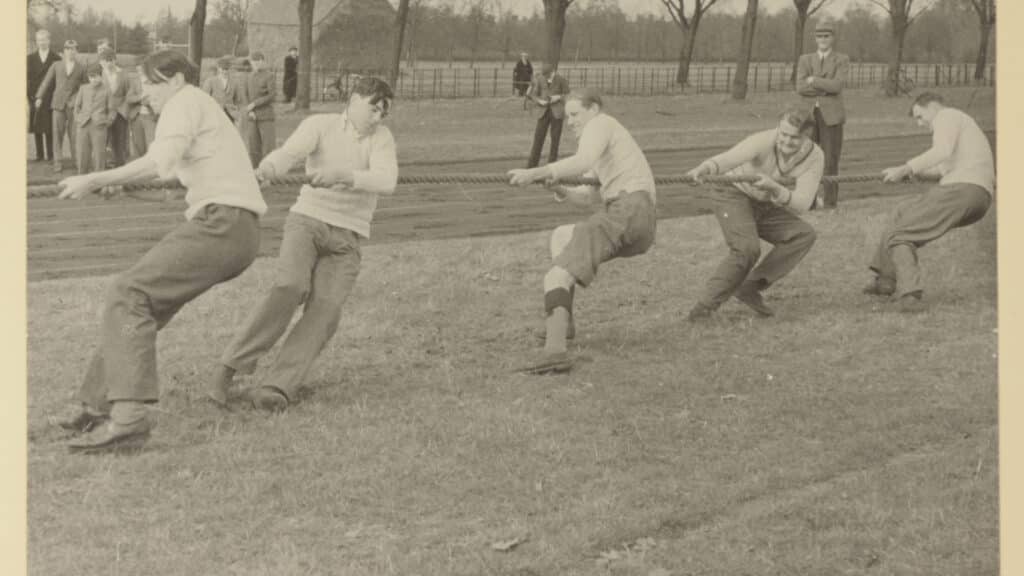Snuggled amidst Queen’s School – the heart of STEM at Eton, the Egerton Theatre is an amazing place. It has seen a wealth of researchers and scientists from across the globe presenting in almost weekly Science Society meetings and it has been the host to annual STEM competitions which bustle with the vibrant enthusiasm of younger years.
Last week, it was even better, a podium on which STEM students in their final year at Eton gathered to present the fruits of a year’s worth of hard work. Not only did they demonstrate a curiosity and rigour of research, they also provided valuable insight and acted as role models for the younger attendees to aspire towards.
The Year 12 STEM project, led by Dr Mackie and Mr Townley, involves a year-long research project in groups of around five members. Teams chose a diversity and variety reflective of the breadth and depth the field of STEM encompasses. This year there were topics ranging from the quest to discover temperatures for superconductivity, as well as the propulsion of ping pong balls with pressure differences.
On the Physics side, the overall winners investigated air flow around a wind turbine, drawing together aerodynamics with computational modelling and an impressive construction of a prototype from MDF and aluminium. The Runners-Up took a drastically different yet equally stunning approach, proposing microbial fuel cells that generate energy from urine – solving two problems at once!
There was something for everyone, extending the field of STEM to a new level. Group members were varied too, with different people focusing on different parts of the project to combine their forces and create those projects. Ultimately, all teams had substantial investment not only to the scientific theory behind the idea, but also to practical implementations and prototypes. The Design Schools played host to the construction of projects the like of model wind turbines and wooden speakers.
The audience was perhaps most impressed by the live demonstration of the pressure propulsion system – ejecting a table tennis ball at almost 70% the speed of sound indeed lit up the room.
There were also focuses on pressing global issues. Construction of modular wind tunnels shed light on renewable energy; production of microbial fuel cells aspired for the accessibility and quality of life in rural areas; the attempt of sound to extinguish fires sough to remove the harms in the production and usage of traditional equipment. Although only one team was able to take home the prize, as an attendee, the “difficulty in choosing the winner” in Mr Townley’s closing remarks could not be more pertinent, not least because of the immense effort and dedication put forward by teams, but also through the presence of certain spikes and specialities that was ubiquitous in each team. As an avid Science enthusiast in Year 11, a high bar was set for us to match next year!
As was mentioned several times during the Symposium, sincerest gratitude and praise must be given to Mr Townley and Dr Mackie for their initiative and lead of the program, to the science teachers that formed integrals mentors to guide and advise the teams, and, most importantly, to the members of the six teams who presented and spearheaded the informative and enjoyable evening of STEM.
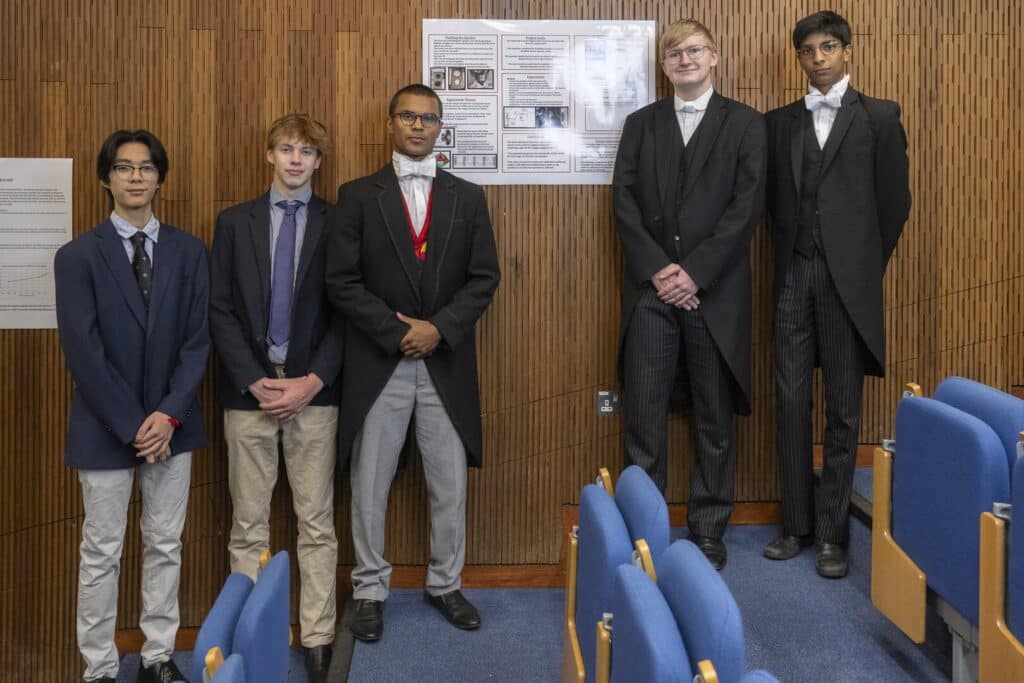
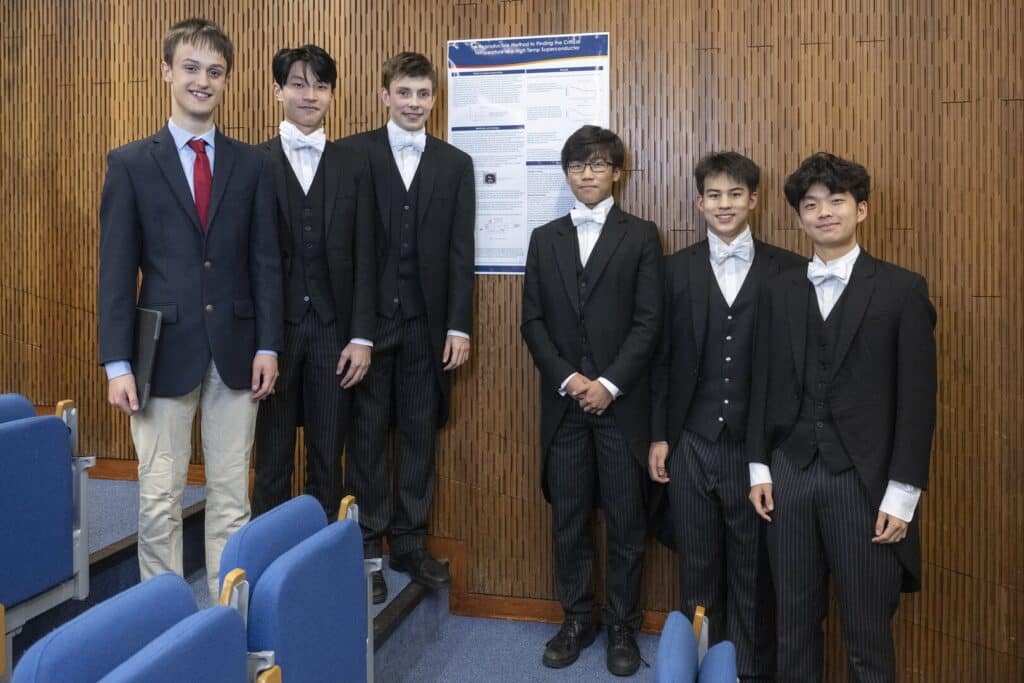
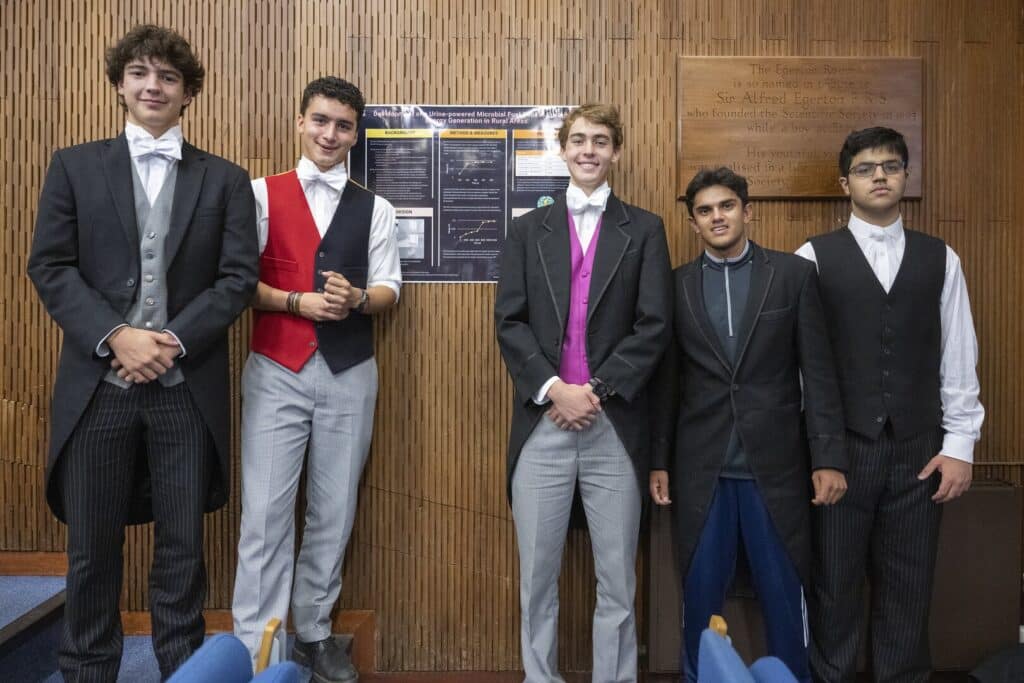
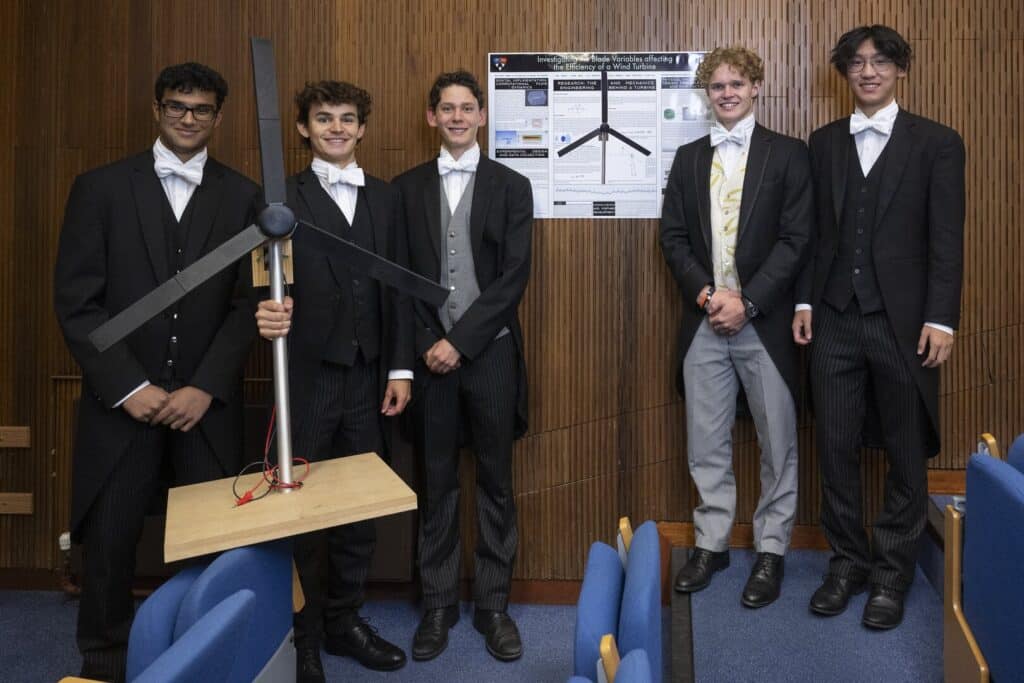
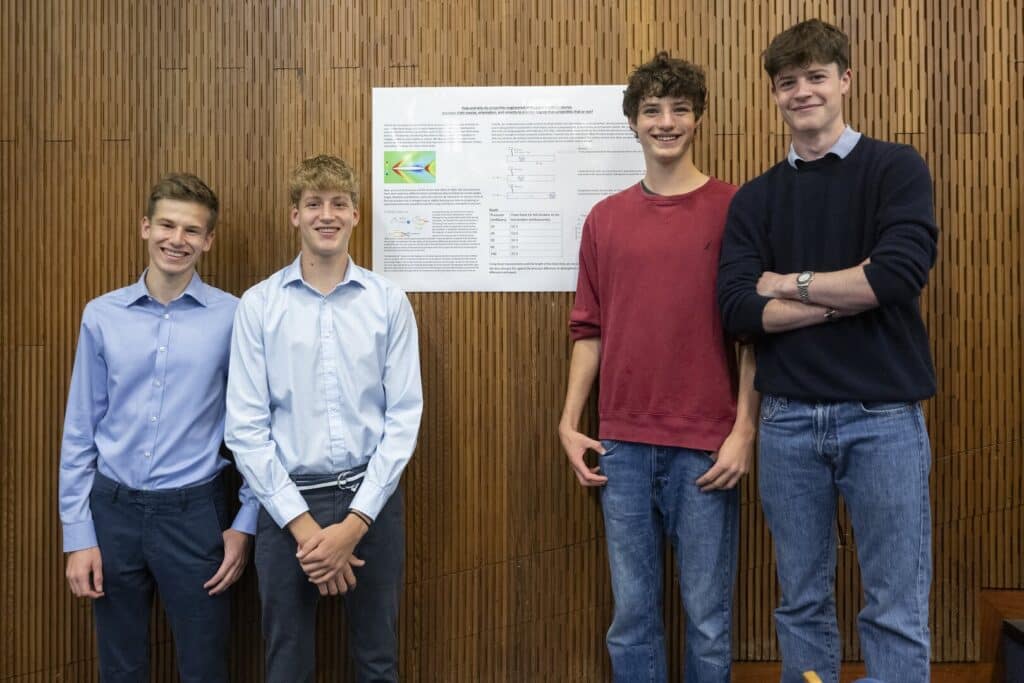
It fills me with great pride to see the completion of this year’s STEM projects. We had ten projects running through the year, with six presenting at the STEM symposium. Projects ranged from tackling global climate issues such as biofuels and bioplastics through to engineering the future with aerodynamics and superconductors.
My personal highlight was on a balmy summer afternoon in June: as I ambled through the corridors of Queen’s schools, a loud bang echoed through the building followed by a shout of triumph akin to England scoring a winning goal in the World Cup! As I dashed through I witnessed some of the best moments of science – when you have been battling and tweaking with equipment for weeks on end for it to finally work. The look and sound of joy and that knowledge that finally you have cracked it – whether it be a bit of tricky coding, an experimental nightmare or working through difficulties working as a team. I am so proud of all the projects this year.
Dr Mackie

